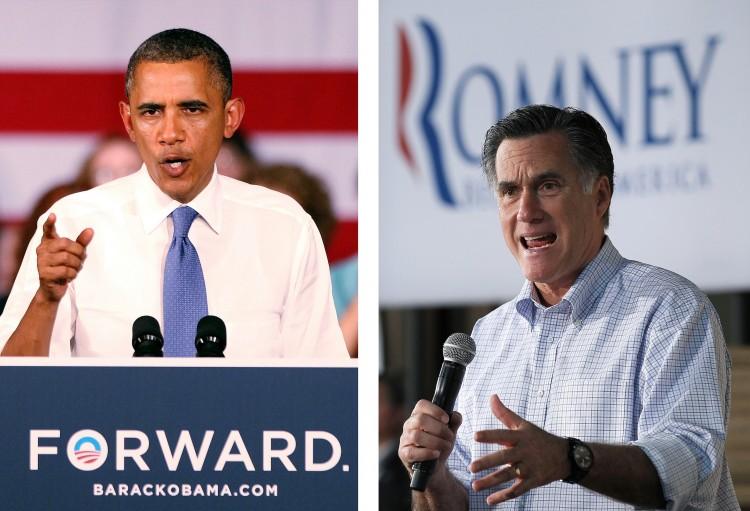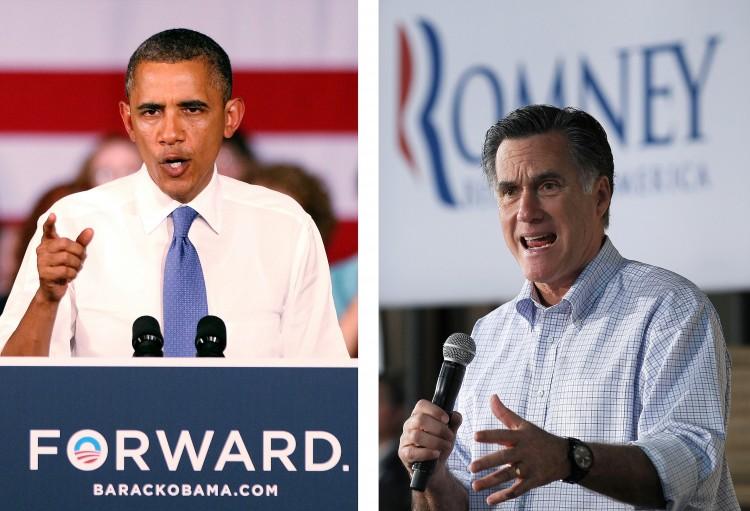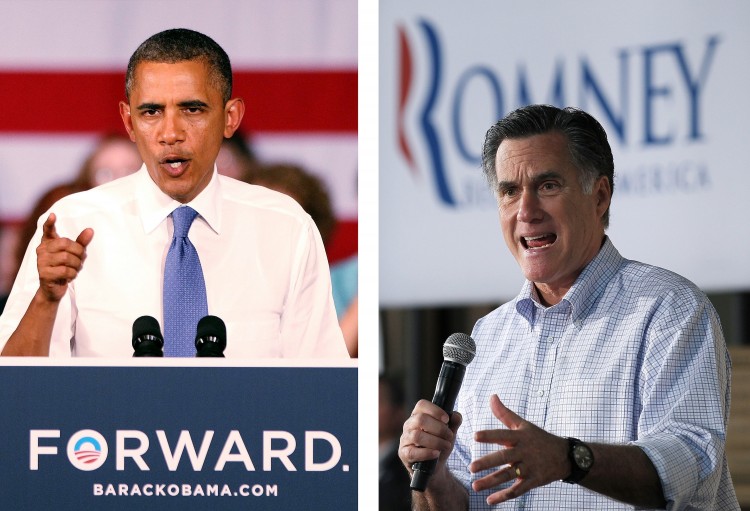WASHINGTON—Both Republican and Democratic campaigns were energized from the national conventions, and as battle lines were drawn, vulnerabilities of both presidential candidates were evident as they jostle for position in what promises to be a very close election.
The Democratic National Convention finished last Thursday night on a high, with President Obama talking up his successes, conceding his mistakes, and differentiating his views from those of Republican presidential candidate Mitt Romney on how to deal with what he described as the big decisions—the economy, jobs, education, health care, war, and peace.
“And on every issue, the choice you face won’t just be between two candidates or two parties.
“It will be a choice between two different paths for America, a choice between two fundamentally different visions for the future,” the president said.
The role of government features strongly in that differentiation, said Dr. Frances Lee, professor of Government and Politics at the University of Maryland.
Republicans emphasized the “we built it” theme, pointing to free enterprise and entrepreneurs as the ones responsible for the economy and jobs. Democrats were more “communitarian,” focusing on the role of government in “expanding opportunity” while emphasizing more “collaborative enterprise.”
“There really is a debate, fully engaged, on those big philosophical questions about the role of government that comes out of the two conventions,” said Dr. Lee.
Both conventions were deemed successful in rallying their bases, with the Republicans establishing a starting base from which to expand, while the Democrats were endeavoring to broaden their base and reach out to newer voters, said Dr. Craig Smith, professor of Communication Studies at California State University–Long Beach.
Smith, a former speechwriter for presidents Gerald Ford and George H.W. Bush, said that the speeches at the conventions revealed a lot about the sort of challenges both presidential candidates face in their campaigns.
President Obama’s speech was “fine” but “workmanlike” and falling short of his deliveries in 2008, according to Smith.
“The expectation that he is going to lift us up, that didn’t happen this time and maybe because one of his jobs was to apologize for his record and to defend it,” he said.
How much Obama can rally Democrats and independents to come out and vote will be the challenge for a president not only struggling with a slow economy, but perhaps also struggling with the realization of his own limitations in affecting change.
A continuation of Friday’s poor job figures will not help. A U.S. Labor Department report shows that 96,000 jobs had been added in August, a lower-than-expected result, down from an addition over 140,000 in July. While the unemployment rate had fallen to 8.1 percent down from 8.3 percent, the report also revealed that 368,000 Americans had left the job market.
“We know it’s not good enough,” Obama said at a campaign stop in Portsmouth, N.H. “We need to create more jobs faster.”
Republicans, too, face their challenges. Romney’s acceptance speech was a disappointment, said Dr. Smith. While well delivered, the speech was poorly crafted, failing to first unify the party and then to acknowledge the other primary’s challengers, as is traditional. Nor did it finish with a conclusion, “leaving the audience uninspired,” he said.
“Given all the talent they had and how important that speech was, that was a real surprise,” he said.
Romney has struggled to unite the party behind him. His record on social issues as governor of Massachusetts, including his own health care program, are the antithesis of positions held by many conservatives in the Republican Party, said Dr. Christina Greer, professor of political science at Fordham University.
“The base is really struggling to get behind Romney, they are trying their best, but essentially they have a candidate that they are just not excited about,” she said.
Romney, as well, has struggled to broaden support and convince independents that he has the answers to improve the economy.
“For independents, they are frustrated in the sense that they want things to be better than they have been in the last four years, but Romney hasn’t necessarily made a case that he could do that,” Dr. Greer said.
Plenty of Positives
Apart from presidential challenges, the conventions also offered plenty of hope for both parties.
Women were strongly highlighted in both the DNC and the RNC, with first lady Michelle Obama and Mitt Romney’s wife, Ann, delivering standout speeches.
Michelle Obama delivered a nearly “perfect” speech, said Smith, with the right variety of tone and balance of metaphor, giving strong support to her husband while appealing to a broader constituent of voters.
Ann Romney, too, “won over the audience with a redefinition of feminism that had a reality to it,” Smith said, noting that spontaneous additions to her scripted speech added authenticity to the softer, more human image she painted of her husband.
A sense of growth in both parties was also evident in newcomers San Antonio Mayor Julian Castro for the Democrats and Sen. Marco Rubio (R-Fla.) for the Republicans, who delivered a couple of the more memorable speeches during the convention weeks.
Romney’s vice presidential candidate, Paul Ryan, popular with the more conservative elements of the Republican Party, was also recognized as a unifying choice for Romney, and Ryan’s speech was “doing everything it needed to energize the base,” said Smith.
For Democrats, unity of vision was evident among the many speakers over the three-day convention, said Dr. Robert Alexander, professor of political science at Ohio Northern University.
“Democrats stopped running from health care reform, the auto bailout, and the stimulus,” he said. “Instead, they heralded those actions as evidence of President Obama’s strong leadership and consequently makes him deserving of a second term.”
The Epoch Times publishes in 35 countries and in 19 languages. Subscribe to our e-newsletter.






